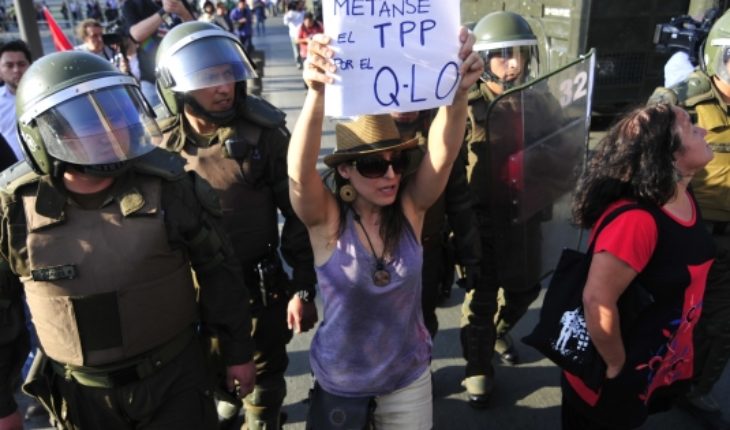As a result of the processing in the National Congress of the Trans Pacific Treaty (TPP)), the discussion of the benefits and detriments of free trade has become increasingly sour. Those who question the TPP11 argue that this type of agreement delivers sovereignty to large transnational corporations, while the defenders are running the economic benefits that this Treaty would bring to the country.
And, since the early 1990s, Chile is the country more free trade agreements it has signed. “Currently has a total of 24 free trade agreements with more than 60 countries of the world and so far we have thought very little about those affected by these agreements,” says researcher Carlos Figueroa, author of the study.
Aiming to generate a broad and purposeful vision in this regard, the investigator drew up a report that delves into the social consequences, monetary, environmental and human rights that these agreements have meant to the Chileans. “This research addresses the problems that bring such agreements and formula proposals to solve these problems” says Figueroa, and adds that “solutions will not continue towards approving treaties such as the TPP11 and approving agreements without having” a democratic process and content that will benefit the entire population.”
The research examines, among others, the problems that bring this new type of agreements that Chile is signing for indigenous peoples, for digital rights and, even, for the health of the population. “There is nothing in the TPP11 or in agreement with the European Union that goes in the way of promoting the health of the Chileans. On the contrary, often open doors so that large transnational corporations leave benefit and this is something that we could end up paying all”, clarifies.
To explain this type of consequences, the researcher also explained why are transnational corporations which could leave benefit. “If the day tomorrow, for example, we decided to change our system of pensions, a transnational company as AFP Cuprum and pro-life, of American capital, could sue to Chile by changing the rules of the game, prevent that we change the law or bet on a gigantic compensation for something he sovereignly choose to the people of Chile”. In that sense, says Figueroa, “treated like the TPP11 or the European Union deliver him sovereignty which has Chile to these companies, who will have the power to prevent that we should change our social and environmental policies”.
Therefore, the document provides proposals that can help to enrich the debate. These range from the field of supranational, passing through constitutional changes that give more power to the Congress and civil society in the negotiations, to funds that allow to mitigate the consequences of globalization for the small entrepreneurs affected by trade.
translated from Spanish: Research analyzes how the TPP11 will give sovereignty to transnational companies
April 2, 2019 |





